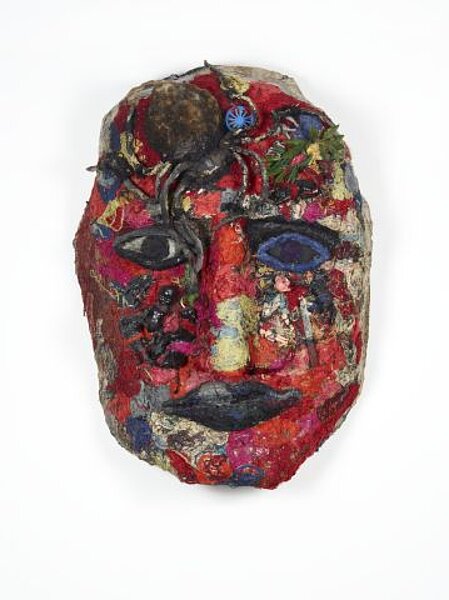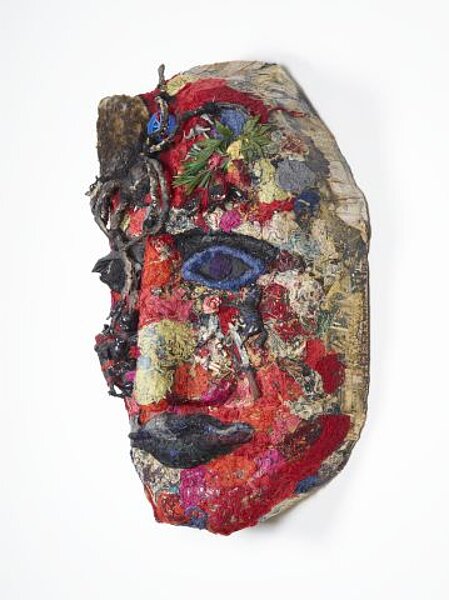
Saint Phalle, Niki de
Napoléon, Napoléon, tu as une araignée dans le plafond
1964
| Object description | Wool and various plastic objects on polystyrene cast |
|---|---|
| Object category | sculpture |
| Material | |
| Technique | |
| Dimensions |
Objektmaß:
height: 158 cm,
width: 110 cm,
depth: 65 cm
|
| Year of acquisition | 2003 |
| Inventory number | P 599/0 |
| Creditline | mumok - Museum moderner Kunst Stiftung Ludwig Wien, ehemals Sammlung Hahn, Köln |
| Rights reference | Bildrecht, Wien |
| Further information about the person | Saint Phalle, Niki de [GND] |
| Literature | Nouveau Réalisme. Schwerpunkte der Sammlung |
“Napoléon, Napoléon, tu as une araignée dans le plafond is a sculpture by the artist Niki de Saint Phalle. The title refers to the French late eighteenth-century emperor Napoléon. It translates as saying that Napoléon has a spider on his ceiling. In French this is an idiom meaning that Napoleon has a screw lose, or is not right in the head. This work looks like a massive mask with a spider sitting on its forehead. The surface of this large face is a confused mass of intertwined wool and textiles, in which the artist wraps and places items from our everyday world, such as toys and other plastic objects. This creates an absurd contoured skin stretched out on a basic framework. The use of everyday items, newly arranged and put into surprising contexts, is typical for the nouveaux realistes. Niki de Saint Phalle was a member of the group. This large head is of a series of works created by Niki de Saint Phalle in the mid-1960s. She often used assemblage to combine three-dimensional objects. Assemblage is derived from the word “collage,” in which two-dimensional materials are stuck together. In Niki de Saint Phalle’s career, these works, including “Napoléon, Napoléon, tu as une araignée dans le plafond,” are a kind of intermediate phase, created after her first shooting actions of 1961, in which she literally shot at canvases on which prepared bags of paint were hung. Later she modelled series of archetypical women, her “Nanas.” Exploration of the role of women is a key feature of her work. She said: “In my work I am forced to reveal every kind of pleasure, desire, anger, pain, and humor. It is my whole life. Nothing is concealed.”
© mumok – museum moderner kunst stiftung ludwig wien

